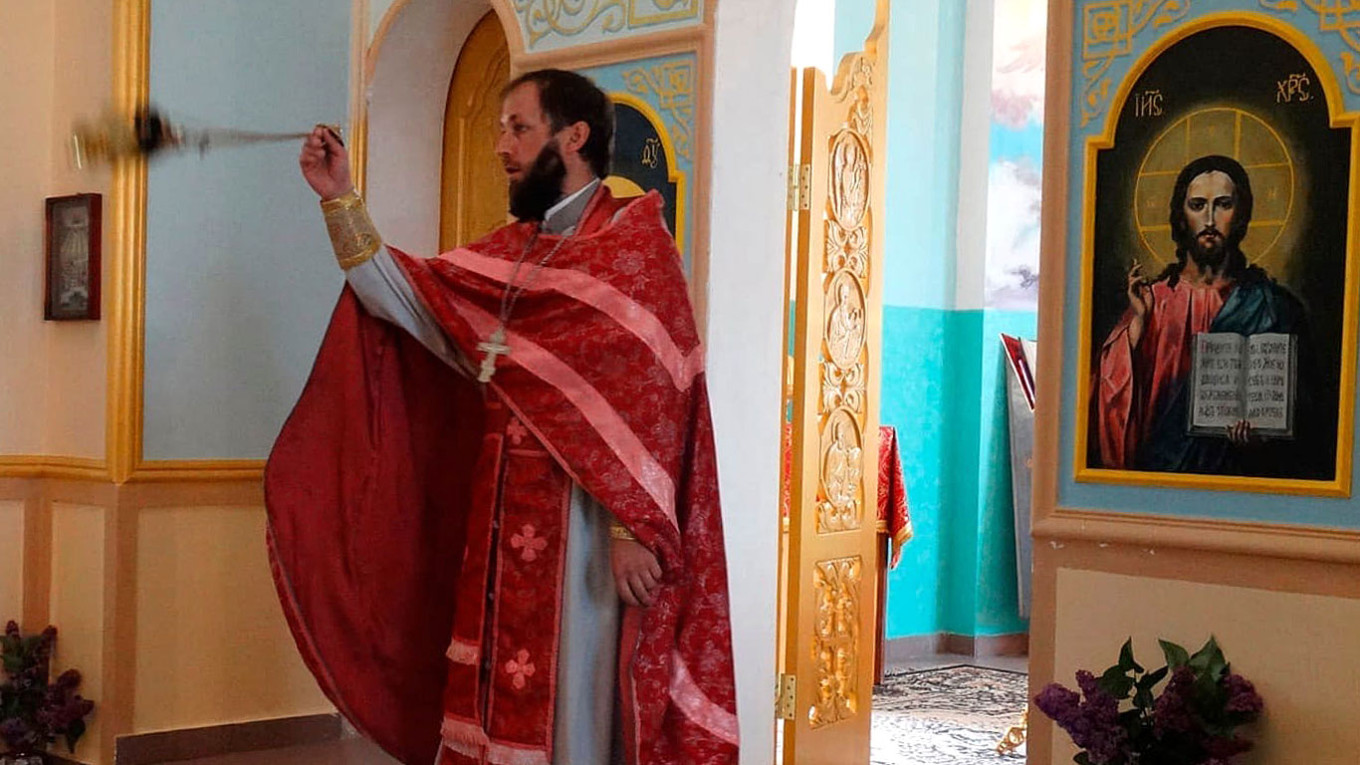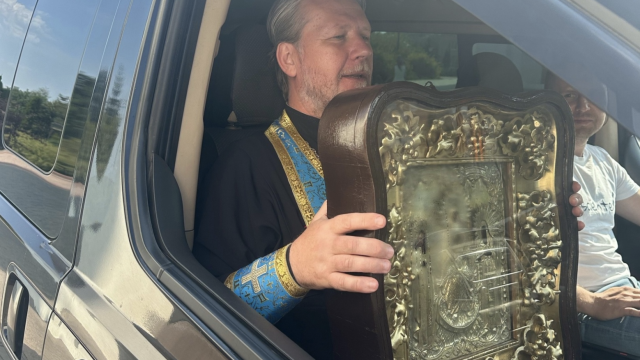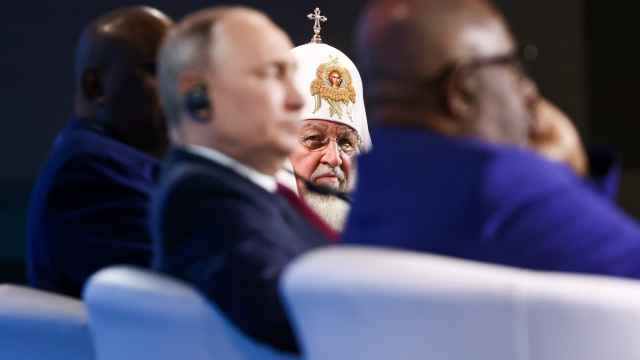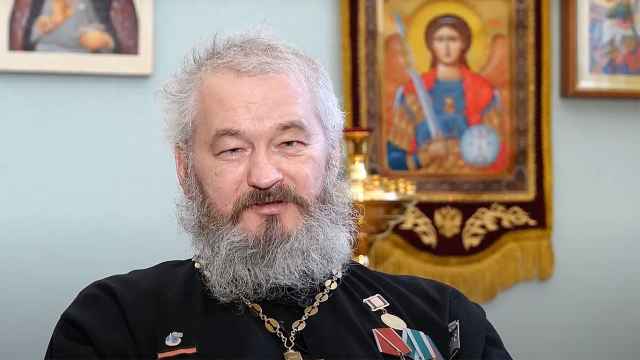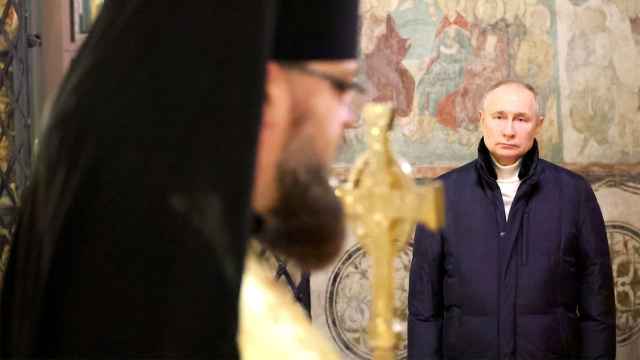Orthodox priest Maxim Nagibin has been an outcast in his village in southern Russia since the sermon he gave at his local church, St. Michael the Archangel, during the Easter service where he condemned the Ukraine war as a “crime.”
“I wanted to express my point of view for people to hear me, wanted to share the pain in my soul,” Nagibin, 38, told The Moscow Times.
“But, unfortunately, not everyone heard me and there were consequences.”
The priest from the Krasnodar region is one of just a handful of Russian religious figures to defy the religious — and secular — authorities by condemning the Kremlin for its invasion of Ukraine. Tens of thousands are believed to have been killed in over a year of fighting.
Those who have dared to take such a step — whether Christians, Buddhists, Jews or Muslims — have not only faced ostracism in their local communities, but been stripped of their positions and even prosecuted. Some have fled the country.
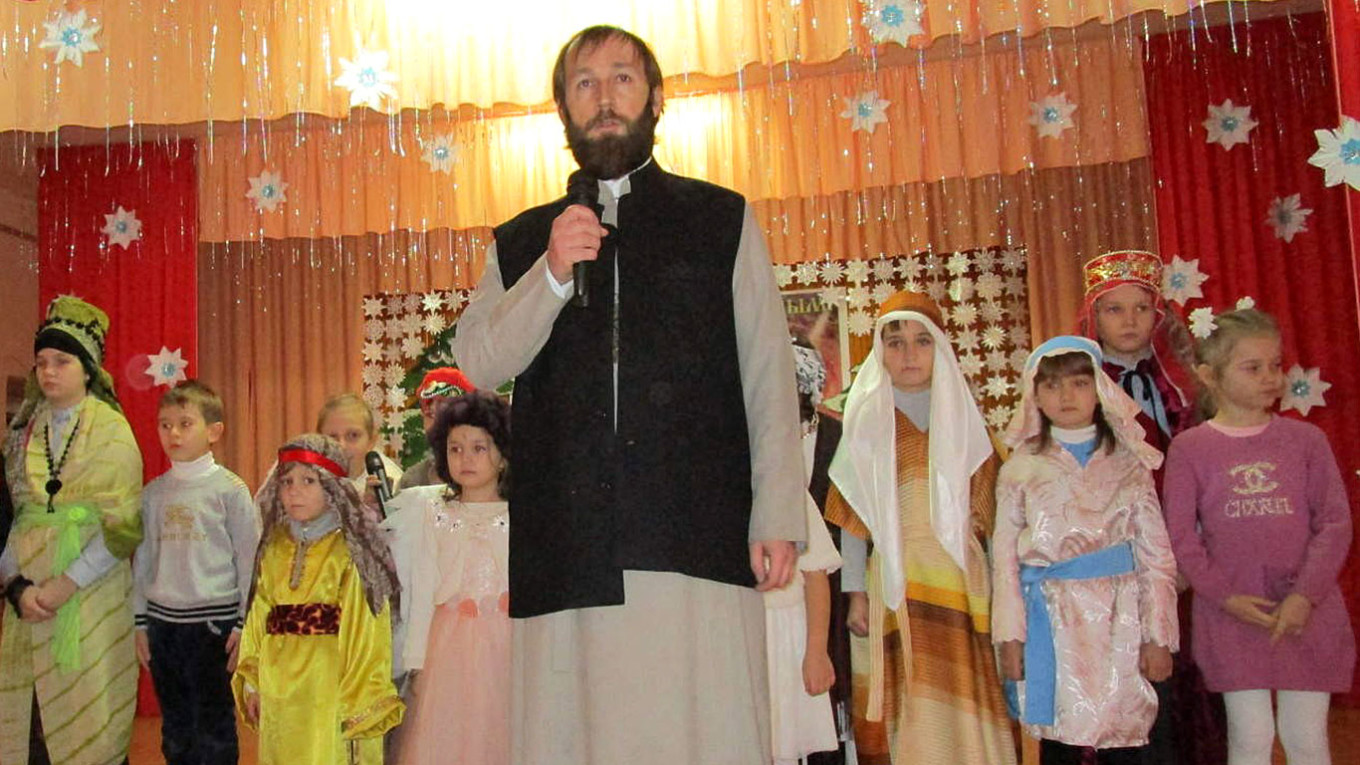
After his anti-war sermon, Nagibin said he was summoned for a conversation with officers from the Federal Security Service (FSB).
He was also apparently reported to both the local police and the church authorities in Moscow. In October, he was charged with violation of wartime censorship laws, but was acquitted because the statute of limitations had expired.
“In my eparchy, there is no dissent,” he said. “People are either scared of speaking up and choose to go with the flow or they support what’s going on. There are two people who think like me [in the village] and they are secular.”
Similarly to Nagibin, Orthodox priest Ioann Burdin from the central Kostroma region gave an anti-war sermon in the early days of the fighting.
He was subsequently convicted under wartime censorship laws and fined 35,000 rubles ($501). The following month, he stepped down from his position as parish priest.
Both Nagibin and Burdin were part of a group of 293 Orthodox clerics who signed an open letter in March calling on “everyone on whom the cessation of the fratricidal war in Ukraine depends” to implement “an immediate ceasefire.”
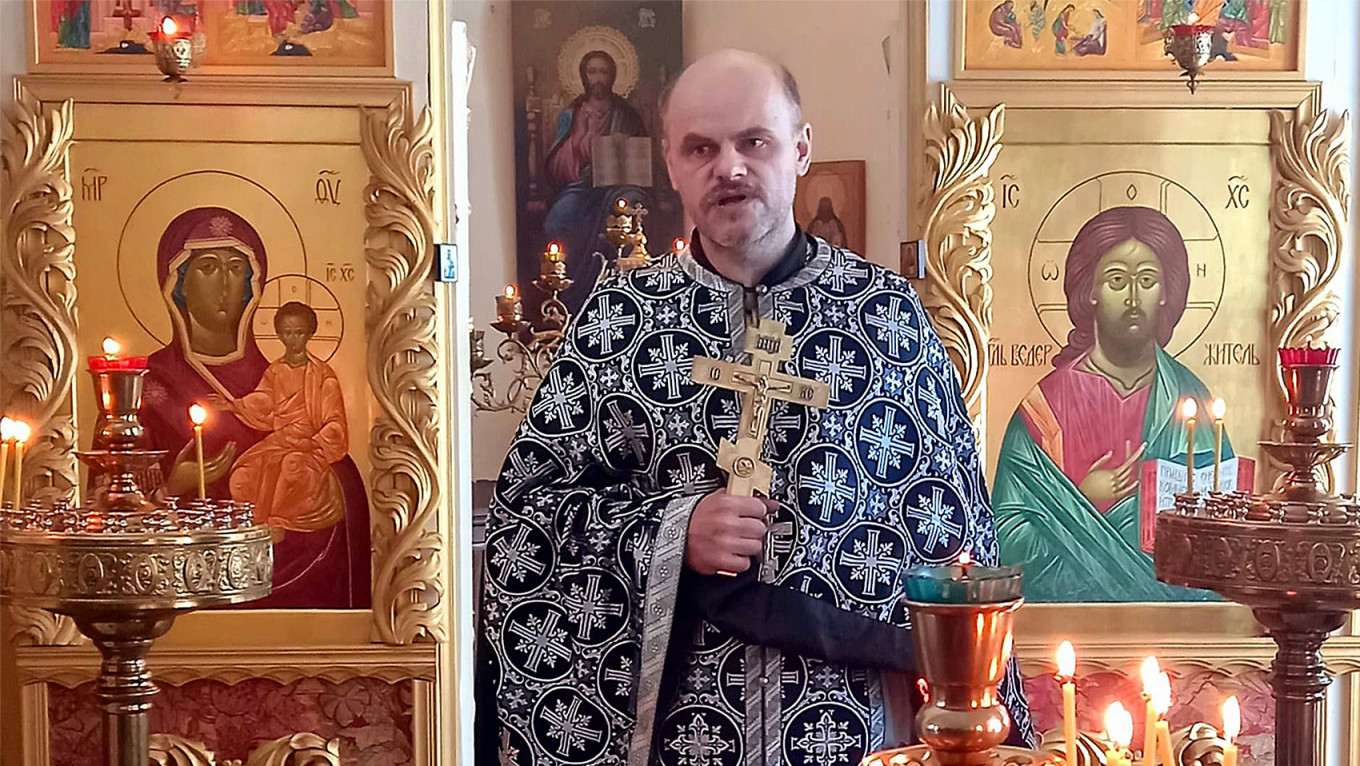
Even almost a year after the Russian invasion of Ukraine, anti-war religious figures continue to be targeted by both the ecclesiastical and secular authorities for their views.
The Dalai Lama’s representative in Russia, Mongolia and other former Soviet countries, Telo Tulku Rinpoche (Erdne Ombadykow), was designated a “foreign agent” by the Russian authorities at the end of last month.
The Buddhist leader, who was born in the United States, opposed Russia’s role in starting the war and fled the country last fall for neighboring Mongolia.
"Nobody needs this war… It is very difficult to say and accept that Russia is right. It’s very hard to say so, and this is what I cannot [say]," Ombadykow said in an October interview.
Two days after his designation as a “foreign agent” — a Soviet-era term that carries connotations of espionage — Ombadykow resigned as the Supreme Lama of Russia’s republic of Kalmykia, where Buddhism is the most popular religion.
Ombadykow is “a respected figure” and “his voice matters,” Kalmyk activist Daavr Dordzhin told The Moscow Times.
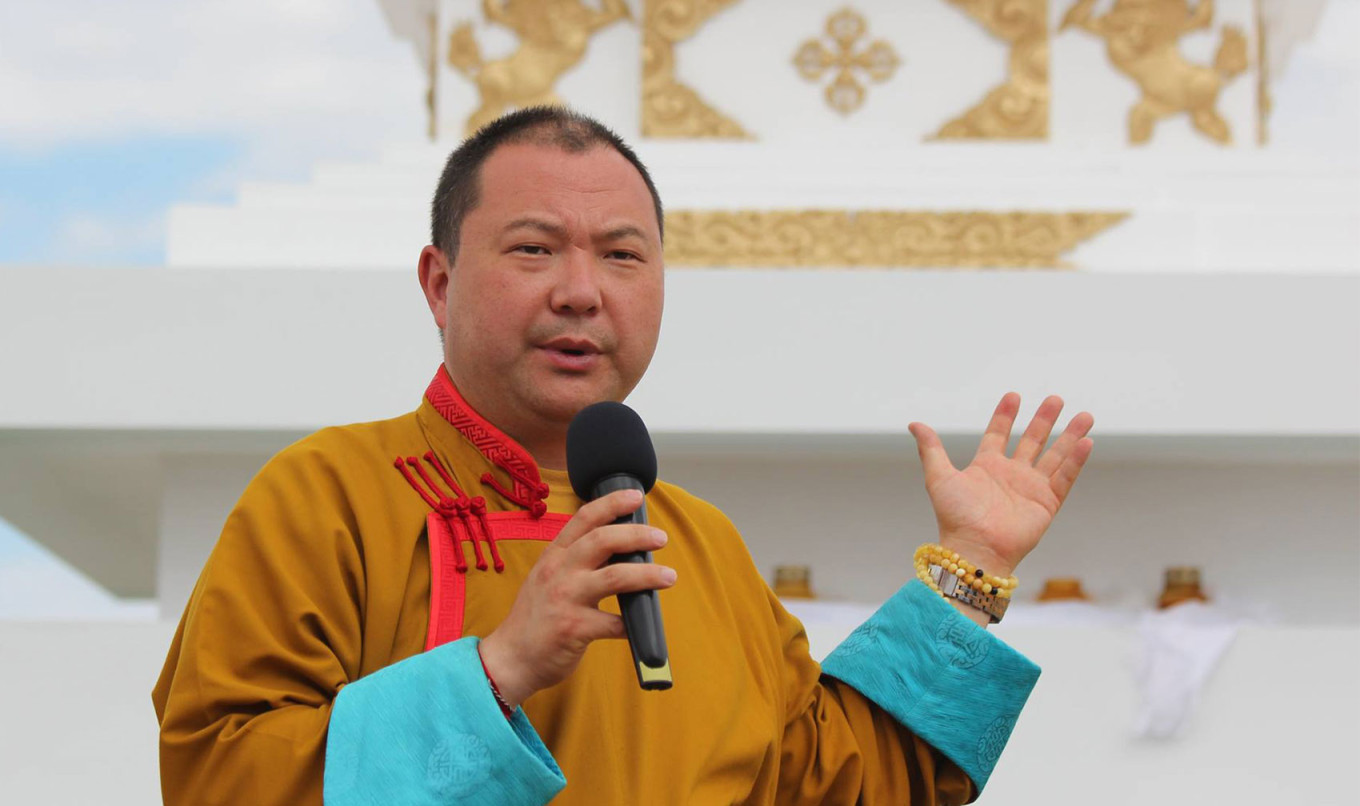
Despite some dissenters — like Ombadykow, Nagibin and Burdin — the majority of Russia’s religious leaders have fallen in line with the Kremlin following the invasion of Ukraine.
The Russian Orthodox Church in particular was quick to show its backing, with leader Patriarch Kirill even promising in a September sermon that “sacrifices” made by Russian soldiers will “relieve them of all sins.”
The Church’s institutional support for the war is unsurprising given its close ties to President Vladimir Putin, according to Sergei Chapnin, a religious scholar and former editor at the Moscow Patriarchate’s publishing house.
“The lifespan of this Church… will equal that of Putin,” he told The Moscow Times.
“Those who openly spoke out against the war are few and it is the names of those wonderful priests that will, undoubtedly, go down in history.”
Some religious leaders have doubts about Russia’s role in the Ukraine war, but remain silent in order to avoid confrontation, according to experts.
While there have been no expressions of dissent from the country’s Muslim leaders, Renat Bekkin, a religious studies specialist who researches Islam’s muftiates, believes that many of them harbor secret reservations.
“The higher their position, the less free they are to express their personal opinion,” he told The Moscow Times.
“If someone speaks out, a mufti would be forced to fire that person.”
Like Buddhist Ombadykow, one of Russia’s most prominent Jewish leaders was also forced into exile for speaking out against the invasion.
Pinchas Goldschmidt, who served as the Chief Rabbi of Moscow for nearly 30 years, left his post and moved to Israel in July after condemning the invasion in an interview with international Jewish magazine Mishpacha.
Describing pressure on him from the Russian authorities to publicly back the war, Goldschmidt said he had no choice but to quit and go abroad.
“It became clear that the Jewish community of Moscow would be endangered by me remaining in my position,” he later wrote on Twitter.
Neither Goldschmidt nor Ombadykow responded to a request for comment from The Moscow Times.
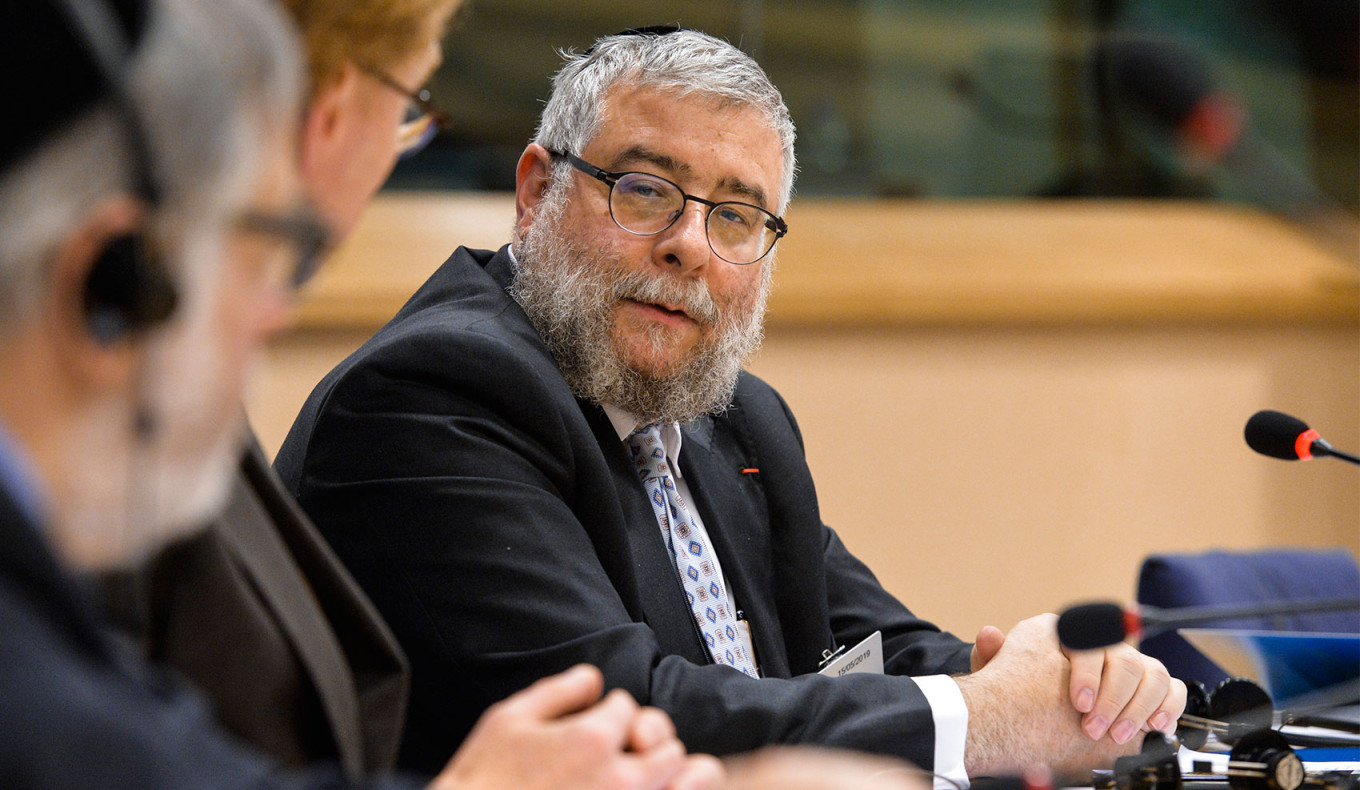
Back in the Krasnodar region, Nagibin decided to plead for forgiveness from his parishioners after his anti-war sermon.
“I asked people to forgive me for allegedly spoiling their Easter holiday. But my convictions remained unchanged,” said Nagibin.
But Nagibin’s return to service was short-lived. Just a few months later, the priest left the church and took a job at a local nursing home.
“It was very hard for me to remain in this organization called the Russian Orthodox Church because it serves the interests of the current regime,” said Nagibin.
Although his relations with locals are fraught, he said his views will not change.
“Everyone knows very well that Russia has lost this war,” Nagibin said in a phone interview.
“Of course, I wish victory to Ukraine. It would also be good for Russia. Russian people need to endure hardship to become better.”
A Message from The Moscow Times:
Dear readers,
We are facing unprecedented challenges. Russia's Prosecutor General's Office has designated The Moscow Times as an "undesirable" organization, criminalizing our work and putting our staff at risk of prosecution. This follows our earlier unjust labeling as a "foreign agent."
These actions are direct attempts to silence independent journalism in Russia. The authorities claim our work "discredits the decisions of the Russian leadership." We see things differently: we strive to provide accurate, unbiased reporting on Russia.
We, the journalists of The Moscow Times, refuse to be silenced. But to continue our work, we need your help.
Your support, no matter how small, makes a world of difference. If you can, please support us monthly starting from just $2. It's quick to set up, and every contribution makes a significant impact.
By supporting The Moscow Times, you're defending open, independent journalism in the face of repression. Thank you for standing with us.
Remind me later.



